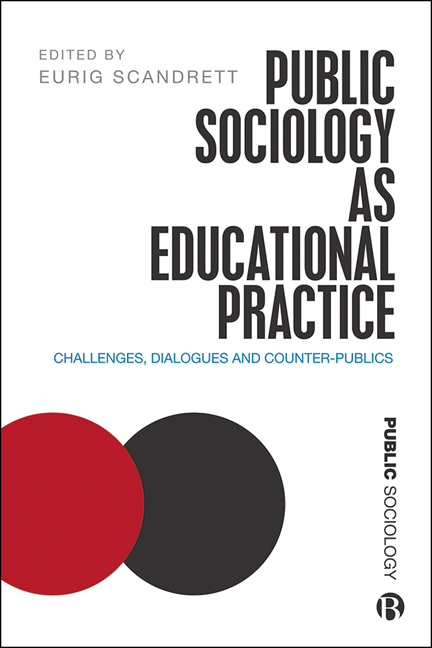I.2 - ‘Seeing Things Differently’: Gender Justice and Counter-Hegemony in Higher Education
Published online by Cambridge University Press: 02 March 2021
Summary
Introduction
This chapter is rooted in the reflexive experience of feminists in Scotland struggling for gender justice – particularly the movement to resist and end men's violence against women (VAW). Our case study focuses on a course ‘Gender Justice and Violence: Feminist Approaches’ (GJV), the fruit of an ongoing partnership between Scottish Women's Aid (SWA) and Queen Margaret University (QMU). Offered every year since 2007, the course engages with debates concerning public policy, professional practice and political activism – particularly in relation to gender-based violence and abuse. The module teaching sessions bring together practitioners and activists (who register as associate students at QMU) alongside full-time sociology students. This enables a challenging process of mutual learning which highlights both the tensions and the transformative potential of grounding social theory in the sometimes divergent standpoints of these overlapping groups. The course is delivered by, and open to, both women and men. The curriculum draws on the struggles of the women's movement and of pro-feminist men, and utilises the work of engaged feminist scholars across a range of academic disciplines, including history, philosophy, criminology and gender studies, as well as sociology. Its presence demands that the practice of activists and the movements which have driven social change are taken seriously within this higher education institution, and that the rigorous analysis of feminist scholars and their methodological approaches becomes a resource for those working in the field. As such, the provision of this course and its impact is, we argue, a counter-hegemonic contribution to gender justice in neoliberal higher education.
The significance of the QMU/SWA collaborative partnership is here located in the wider social and political context of feminist struggles since the 1970s, and now in post-devolution Scotland – the context in which the co-authors have engaged in education, training and activism. The women's liberation movement of the 1970s was the catalyst for naming domestic abuse as a social problem and developing a structural analysis of gender inequality as both cause and consequence of men's violence against women (Browne, 2014; Scottish Women's Aid, 2018) Women's Aid (WA) emerged as the cutting edge of that movement, not only developing practical support services, but also at the forefront of struggles for justice and rights, contesting prevailing theories (and ‘common sense’) which purported to ‘explain’ domestic abuse, and insisting on analysis grounded in understanding the gendered structure of patriarchy
- Type
- Chapter
- Information
- Public Sociology as Educational PracticeChallenges, Dialogues and Counter-Publics, pp. 37 - 52Publisher: Bristol University PressPrint publication year: 2020



